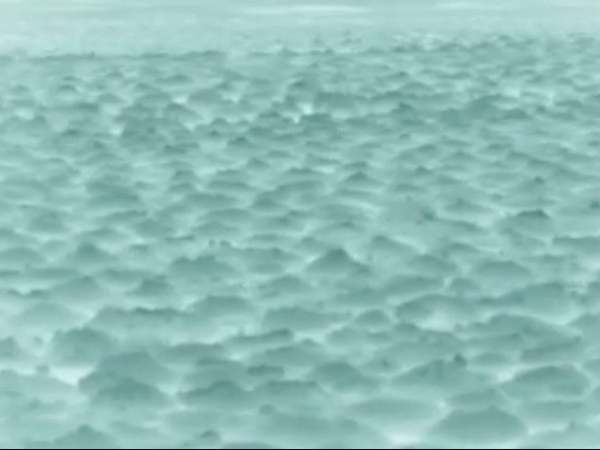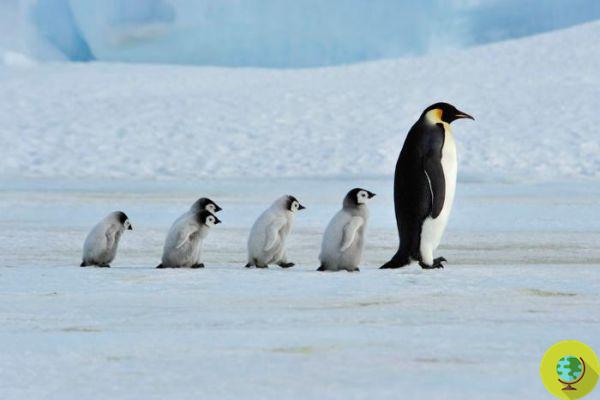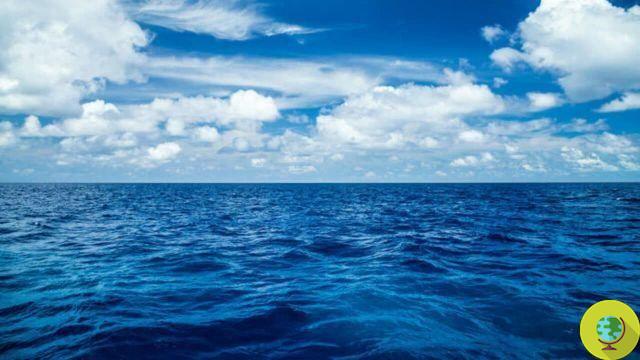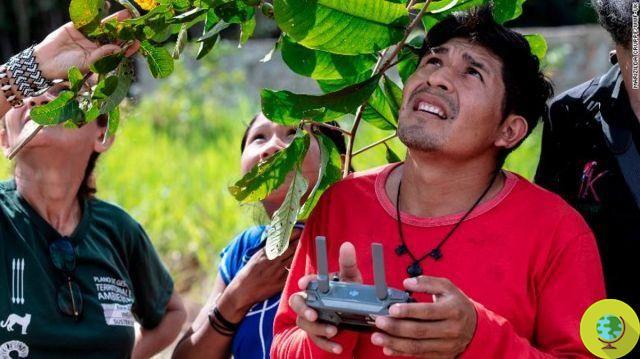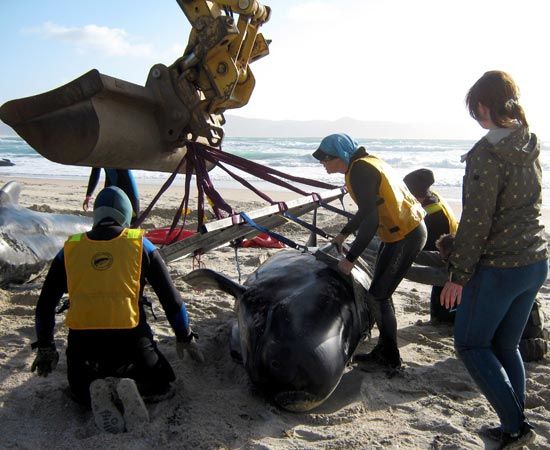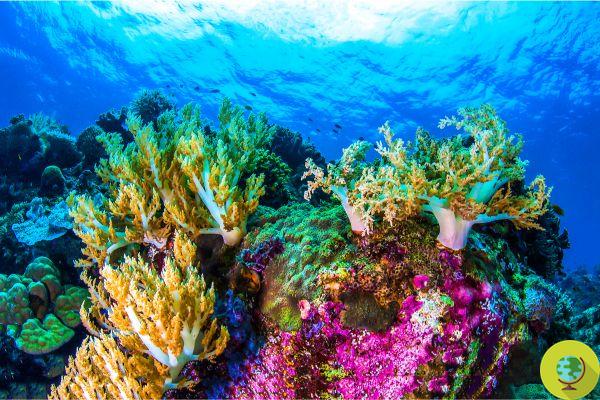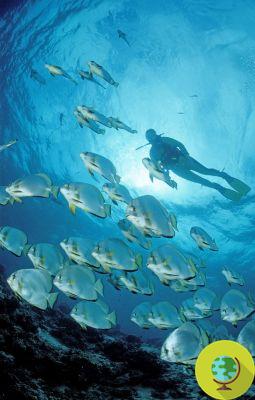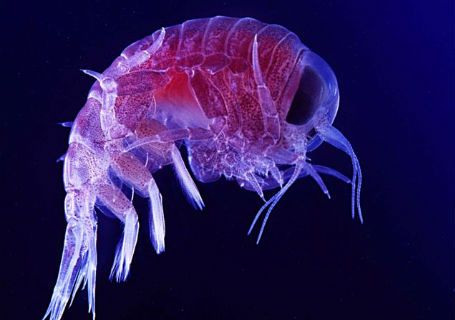Turning to the common fisheries policy (CFP). Yesterday the European Parliament approved a historic reform that could guarantee the sustainability of the sector by protecting in the long term the fish species, endangered by intensive fishing
He is about to end up run over, his mother saves him
Turn in the common fisheries policy (PCP). Yesterday the European Parliament approved one historical reform which could guarantee the sustainability of the sector by protecting fish species in the long term, endangered by the intensive fishing.
After 2011 reform on the CFP, the European Union has decided to change its strategy with an intervention aimed at repopulating the seas and protecting the species of fish now reduced to the limit. Since 2015, Member States will not be able to set excessively high fishing quotas. Fishermen will also have to respect the so-called "maximum yield established“, That is, they will not be able to capture more than a certain number of specimens of a certain species than they can reproduce in a year.
Through this measure, MEPs are hoping for one recovery of fish stocks starting from 2020, when the levels of the established maximum yield can be raised again: "This will mean more fish, richer fishing trips and therefore more work in the sector" reads an EU note.
According to the give of the European Commission over 80% of the fish stocks in the Mediterranean and 47% of those in the Atlantic are subject to intensive fishing. This is why a decisive action is needed. The reform voted in plenary has therefore established more rigid measures to tackle the problem, with 502 votes in favor, 137 against and 27 abstentions.
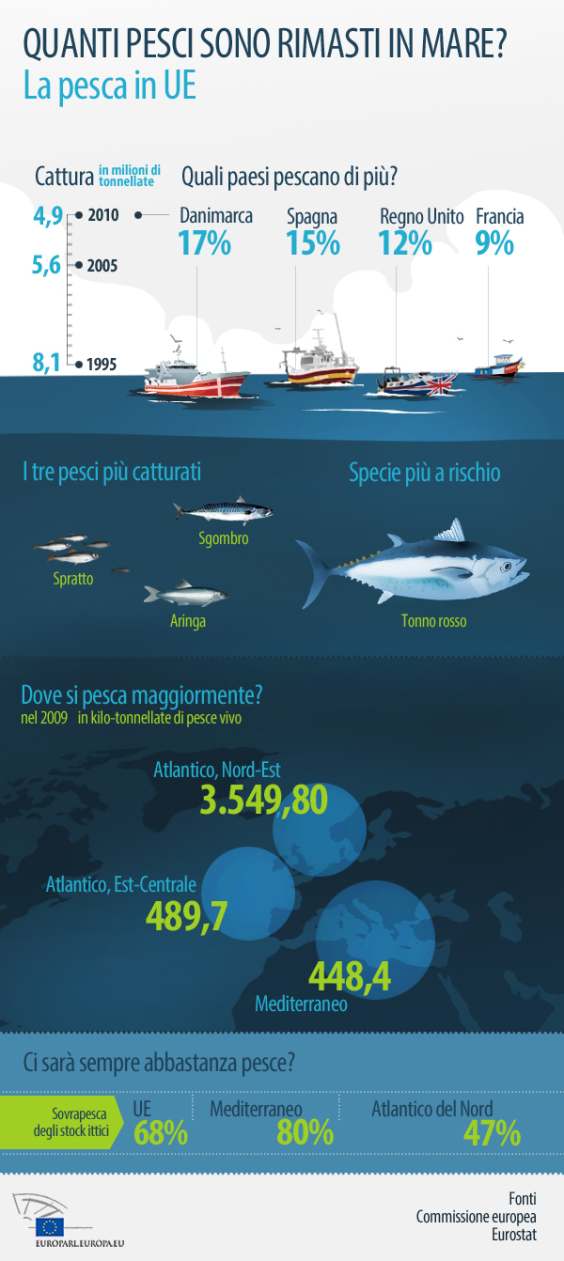
The reform, which is expected to come into effect in 2014, will oblige fishing vessels to land all catches, also to facilitate control, according to a specific calendar for each species. Because? Almost today a quarter of the total catch ends up being rejected that is, it is discharged into the sea if not desired or considered too small. The so-called discards they are almost totally dead fish. This is a harmful practice that has led to EU intervention. Under the new rules, smaller fish landed will be destined for uses other than human consumption and Member States will have to ensure that vessels comply with the discard ban.
“We demonstrated today (yesterday February 6, Editor's note) that Parliament is anything but ineffective. We have used our power as co-legislators, for the first time in fisheries policy, to put a stop to intensive fishing. Fish stocks are expected to recover by 2020, allowing us to have 15 million tonnes of more fish available and create 37 new jobs, ”said Fisheries Reform Rapporteur Ulrike Rodust. Once this is done, Parliament will begin the negotiation phase with the Council and the Commission to establish the plans for the reform before the second reading.
Xavier Pastor, Executive Director of Oceana in Europe, commented on the news: “Today, the EU has taken a considerable step towards the proper management of our fisheries resources. On behalf of Oceana, I thank all the representatives of European citizens for supporting global calls for urgent action for the health and future of our oceans. "
If a similar result has been reached, says Slow Food, it has also been thanks to the intervention of environmental associations. “We applaud the fact that the European Union has understood the need for decisive action on the protection of fish resources. We ask that, together with the measures againstoverfishing based on the increase in fisheries selectivity, for which we can only express satisfaction, adequate economic resources are put in place aimed at de-pollution of coastal areas. In this sense, we hope that the Common Fisheries Policy will be accompanied by an equally effective European environmental policy ”said Silvio Greco, president of the Slow Fish Scientific Committee.
The Irish presidency of the Council hopes to reach an agreement by the end of June.
Francesca Mancuso
Read also:
- Intensive fishing is shrinking fish
- Paint a fish against the exploitation of the seas and intensive fishing





